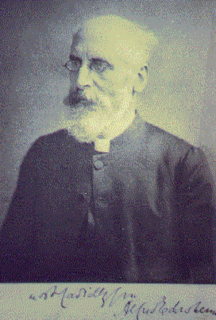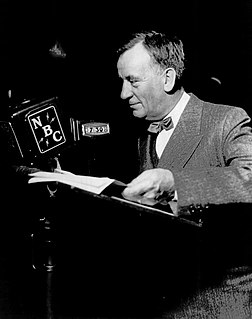A Quote by Alain de Botton
A world where a majority had imbibed the lessons implicit within tragic art would be one in which the consequences of our failures would necessarily cease to weigh upon us so heavily.
Related Quotes
We cannot understand the meaning of many trials; God does not explain them. To explain a trial would be to destroy its object, which is that of calling forth simple faith and implicit obedience. If we knew why the Lord sent us this or that trial, it would thereby cease to be a trial either of faith or of patience.
The world has no circumference. It would certainly have a circumference if it had a centre, in which case it would contain within itself its own beginning and end; and that would mean that there was some other thing which imposed a limit to the world - another being existing in space outside the world. All of these conclusions are false. Since, then, the world cannot be enclosed within a material circumference and centre, it is unintelligible without God as its centre and circumference.
If the entire world decided to become vegan tomorrow, a whole host of the world's problems would disappear overnight. Climate change would decrease by 25 percent, deforestation would cease, rainforests would be preserved, our water- and air-quality would increase, life-expectancy rates would increase, and our rates of cancer would plummet, so certainly, with that one action of becoming vegan you are quite effectively making the world a better place.
Our God, who art our winged self, it is thy will in us that willeth.
It is thy desire in us that desireth.
It is thy urge in us that would turn our nights, which are thine, into days which are thine also.
We cannot ask thee for aught, for thou knowest our needs before they are born in us:
Thou art our need; and in giving us more of thyself thou givest us all.
The Scripture, which tells us not to be angry at all, and which says in the thirty-seventh Psalm, Cease from anger, and forsake wrath, and which commands us by the mouth of Paul to put off all these, anger, wrath, malice, blasphemy, filthy communication, would not involve God in the same passion from which it would have us to be altogether free.
The relationship between government and art must necessarily be a delicate one. It would not be appropriate for the government to try to define what is good or what is true or what is beautiful. But government can provide nourishment to the ground within which these ideas spring forth from the seeds of inspiration within the human mind.
It comforts me to think that if we are created beings, the thing that created us would have to be greater than us, so much greater, in fact, that we would not be able to understand it. It would have to be greater than the facts of our reality, and so it would seem to us, looking out from within our reality that it would contradict reason. But reason itself would suggest it would have to be greater than reality, or it would not be reasonable.
The surest way to know our gold, is to look upon it and examine it in God's furnace, where he tries it that we may see what it is. If we have a mind to know whether a building stands strong or not, we must look upon it when the wind blows. If we would know whether a staff be strong, or a rotten, broken reed, we must observe it when it is leaned on and weight is borne upon it. If we would weigh ourselves justly we must weigh ourselves in God's scales that he makes use of to weigh us.






































